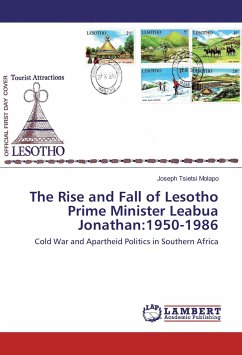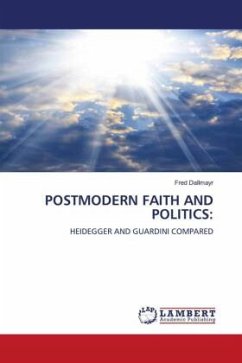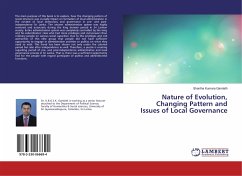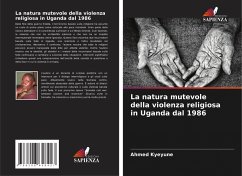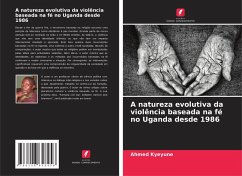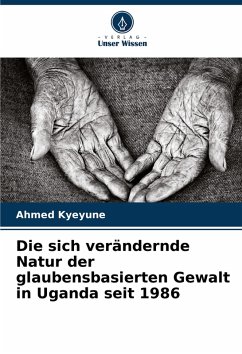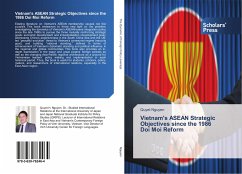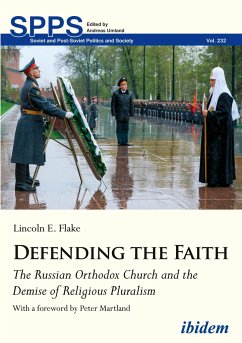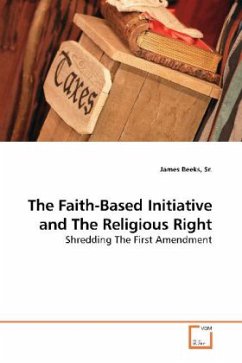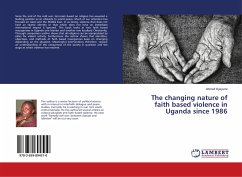
The changing nature of faith based violence in Uganda since 1986
Versandkostenfrei!
Versandfertig in 6-10 Tagen
24,99 €
inkl. MwSt.

PAYBACK Punkte
12 °P sammeln!
Since the end of the cold war, terrorism based on religion has assumed a leading position as an obstacle to world peace. Much of our attention has focused on Islam and the Middle East. In so doing, violence that does not have an Islamic identity or that which does not have an immediate international impact is ignored. This book looks at two faith based insurgencies in Uganda one Islamist and another one localized Christianity. Through comparison author shows that all religions can be manipulated by elites for violent activity. Furthermore the author shows that identities, objectives, and metho...
Since the end of the cold war, terrorism based on religion has assumed a leading position as an obstacle to world peace. Much of our attention has focused on Islam and the Middle East. In so doing, violence that does not have an Islamic identity or that which does not have an immediate international impact is ignored. This book looks at two faith based insurgencies in Uganda one Islamist and another one localized Christianity. Through comparison author shows that all religions can be manipulated by elites for violent activity. Furthermore the author shows that identities, objectives, and methods of faith based insurgencies keep on changing depending on the situation. Meaningful interventions therefore, require an understanding of the uniqueness of the society in question and the stage at which violence has reached.



